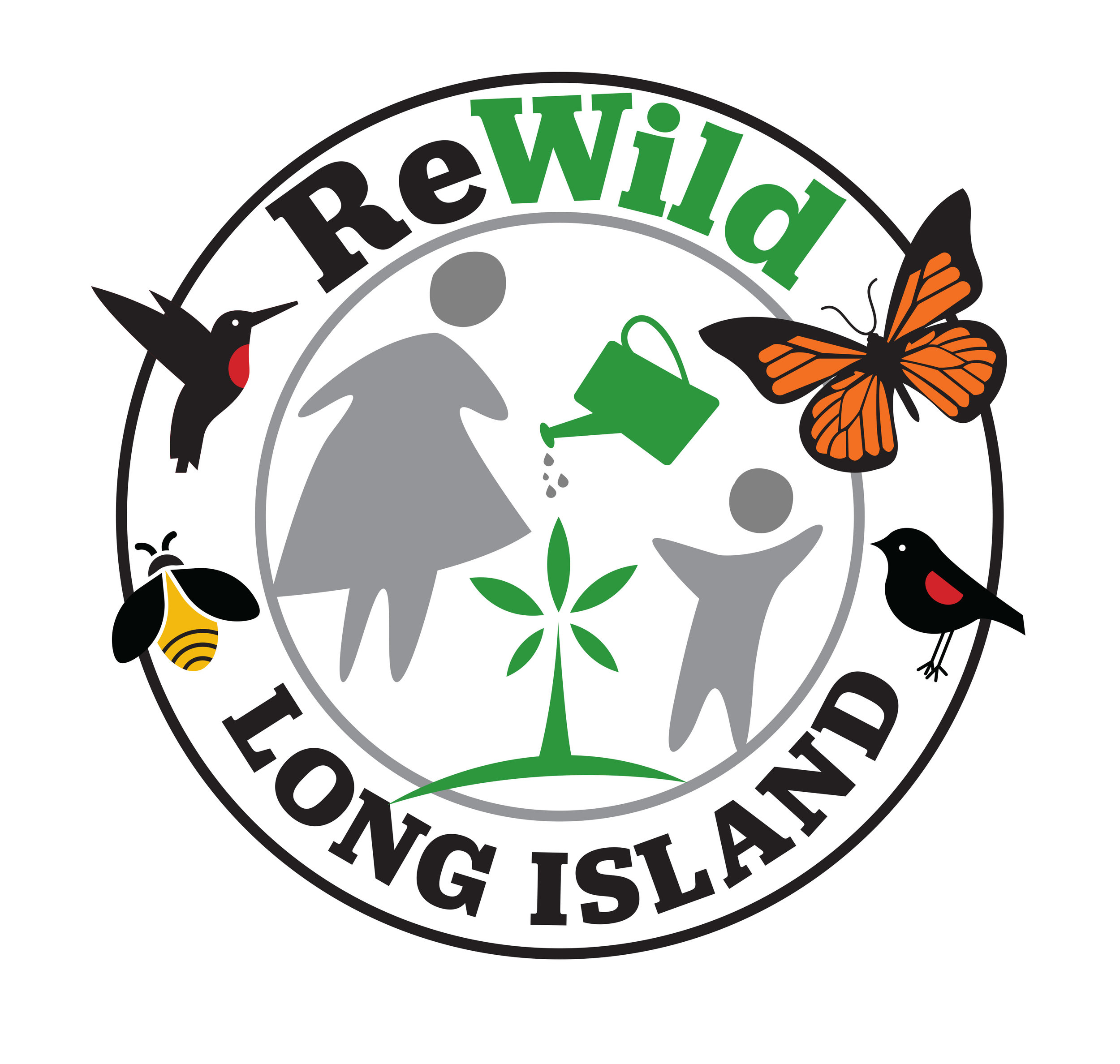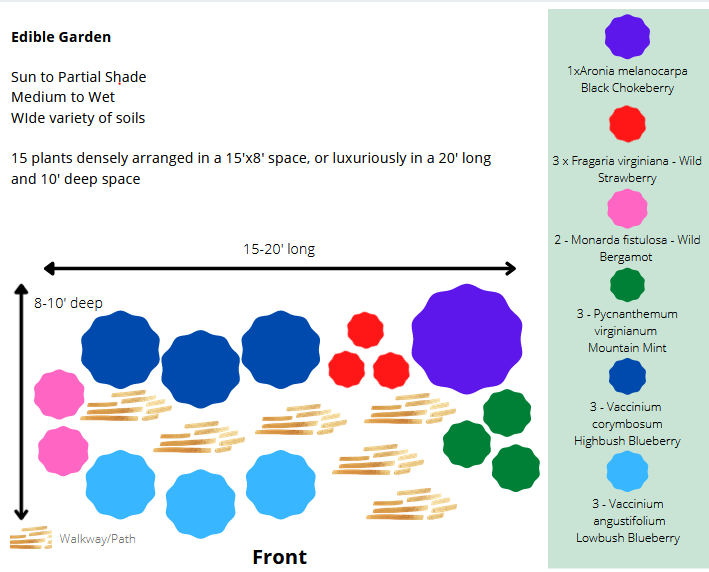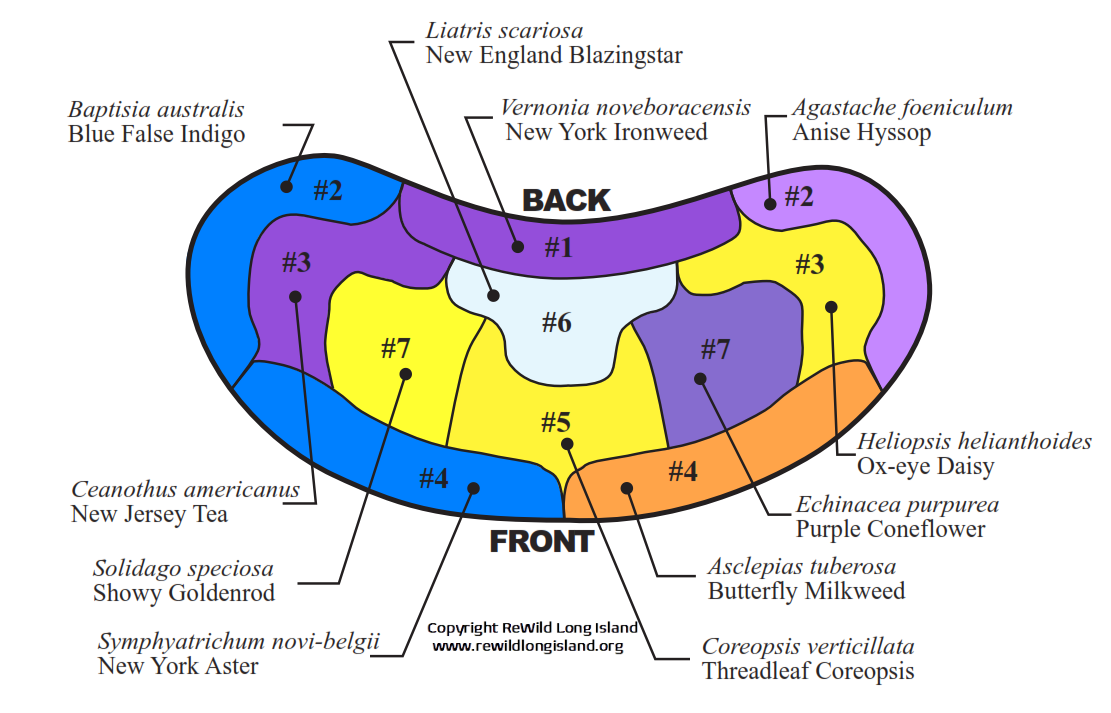Summer brings colorful blooms and lots of insect dilemmas. It seems everything can look great one day and be covered in bugs the next. Mainstream gardening education has taught us that bugs are bad (they’re not) and that they must be controlled immediately with chemicals (they don’t have to be!). With the rising popularity of chemical free, native gardening, many gardeners are opting for a more natural approach to pests: purchasing beneficial insects and releasing them into the garden. This is a great idea as long as the insects purchased are native to the area they are released in. After all, we don’t want to add to the pest problem by releasing the wrong kinds of bugs into the environment. Here is some information about two commonly purchased insects: lady bugs and praying mantis.
Read More
Prof Jonathan Lehrer is Chairperson at the Department of Horticulture and Urban Design at Farmingdale State College. New rewilders would much appreciate his excellent presentation on the basics of Long Island Ecology and Invasion Biology. Very accessible information about what makes a species a “weed” or “native” or “non-native” or “Invasive”. Also, which of these terms have a scientific basis and why do we care about these classifications
Are you interested in volunteering for ReWild LI? Find out about what we do and read on for some helpful tips on volunteering.
Read MoreYou don’t need a lot of space to create a big buzz with pollinators and other wildlife. Whether you have a small yard, or just want to convert a portion of a larger space, a Postage Stamp Prairie is the answer. Also known as Pocket Prairies, these small plantings have the ability to recreate the Maritime Grassland plant communities that once dominated large portions of Long Island, providing you with an attractive, biodiverse garden filled with color and life.
Anthony Marinello, a permaculture & rewilding expert, presents this session for new and experienced rewilders alike.
Read MoreAre you new to native plants and need help getting started? The wide variety of plants available and the overwhelming information available can make your initial forays a little intimidating. Kimberly Simmen, an experienced horticulturist, presents an introductory guide to starting a pollinator garden.
Watch the video of the talk that Kimberly gave on March 23, 2021 over zoom.
Read MoreYou’ve installed your native plant garden and now your plants need a little TLC to help them get established.
Native plants require less assiduous maintenance than comparable exotics. But like all other garden plants they do need to be watered and weeded.
In this post, Rebecca Vargas, a home gardener and native plant enthusiast, outlines the basic care and feeding of your native plant oasis!
Read MoreWith growing awareness of the importance of native plants as aesthetically pleasing, chemical-free and low maintenance alternatives to conventional exotics, the demand for affordable and high-quality native plants has exploded over the last years. However, as conventional garden centers still lag behind, environmental non-profit organizations like ReWild and Huntington-Oyster Bay Audubon Society (HOBAS) have been blazing a new trail.
Read on to learn about how ReWild Long Island and HOBAS are working to increase the geographical availability of native plants this spring.
Read MoreReWild works with expert Native Plant landscape designers to bring you ideas based on their years of experience.The ReWild Edible Garden featured in this post is by Kimberly Simmen, a native plant expert and owner of KMS Native Plants LLC. The design features berry bushes that are attractive to birds and humans. Get yours first if you can …
Read MoreReWild works with expert Native Plant landscape designers to bring you ideas based on their years of experience.The ReWild Wildflower Meadow featured in this post is by Kimberly Simmen, a native plant expert and owner of KMS Native Plants LLC, Long Island’s first year-round retail native plant garden center. The design features vibrant flowering perennials with year round pollinator interest for small spaces.
Read MoreReWild works with expert Native Plant landscape designers to bring you ideas based on their years of experience. The “Bee and Butterfly” Showy Sun Design from Rusty Schmidt, one of Long Island’s premier Landscape Ecologists, provides year-round interest with plants guaranteed to be blooming from late May well into October. Their contrasting colors and varying heights are designed to show off each in the verdant background of the others.
Read MoreReWild works with expert Native Plant landscape designers to bring you ideas based on their years of experience. The Cool and Vibrant Shade Design from Rusty Schmidt, one of Long Island’s premier Landscape Ecologists, provides year-round interest with plants guaranteed to be blooming from late May well into October. The garden is vibrant with plants that flower attractively despite the shade.
Read MoreMilkweed played such an important medicinal role in the Americas that in 1753 Carl Linneaus, the father of taxonomy, named the milkweed family after Asclepias, the Greek God of medicine.
As native plant enthusiasts, we all know and love our milkweed plants and the wonderful monarch butterflies they host.
But do you know other insects that find a home on your milkweed at different times of the year?
Rebecca Vargas goes through the different stages of milkweed and the fascinating insects that appear at different times on your plants.
Read MoreHappy New Year and thank you for your continued support of ReWild Long Island.
ReWild Long Island had a busy and productive 2020 in spite of the Covid-19 pandemic. We distributed and planted native perennials, launched a youth summer program to fight hunger and climate change, composted and recycled, zoom conferenced and made bokashi bran, masked and socially distanced, and finally, celebrated the end of a really challenging but productive year.
Our shout out to our amazing members, donors, volunteers and rewilders! We thank you for your continued support in 2021 😊
Read MoreReWild Long Island is thrilled to welcome two new Directors to the Board: Liz Skolnick of Sag Harbor and Brooklyn and Kathy Coley of Port Washington.
With the rapid growth of interest in sustainable landscaping, ReWild Long Island has been busy expanding our activities. The addition of Liz and Kathy to the board increases our capacity to conceive of new projects and execute on the vision of replacing conventional landscapes with more native plants, organic produce, as well as soil building and water conservation.
Read MoreEvery Fall, outside your door, there is a huge bonanza of nutrients for your garden and plants. Every year this is free and readily available . We are talking about leaves. Instead of raking, blowing, bagging and sending leaves to the landfill, they can be used the enrich the plants and soil. Since fall leaves contain a lot of carbon and other important micro nutrients they make great mulch, compost, and even lawn fertilizer.
Paul Merkelson who leads ReWild Compost Committee discusses how you can save yourself work and help your yard!
Read MoreWhen Janine moved into her East Islip home 9 years ago, she always looked at this drab far corner of the yard and imagined a little pond there. It would be small and peaceful, with a sweet little waterfall and a few little goldfish. The idea was always too complicated, too expensive, and too difficult to attempt!
She says, “Enter 2020, Covid-19, home-schooling, murder hornets and quarantine. As a healthcare worker during the most unique and stressful time of my career, I decided there was no time like the present to expand my native pollinator garden …”
Read on to see the amazing transformation of Jannine’s yard even as she battled Covid on the front-lines as a health care worker while home-schooling her two daughters!
Read MoreWe are happy to announce the first year of Student Internships to Fight Hunger and Climate Change. These internships are targeted towards High School Students who are motivated to work outdoors in nature, while benefiting people, plants, bees, birds and butterflies.
The program runs from July to October and requires a minimum commitment of 4 hours a week in Port Washington, NY.
Read MoreCharles Maass is a Civil Engineer living in Manhasset on Long Island. He grew up in this lawn and tree loving community, and now lives with his wife and two sons. His interests include reading and triathlon training. Most importantly, he has always hated his turf grass lawn, and finally replaced it with a beautiful carpet of creeping thyme. Here is how he did it …
Read MoreThis blog post was sparked from a startling observation–a monarch butterfly in my backyard (in April). To most this doesn't seem like an issue. It was spring after all, and with warming temperatures come butterflies. The monarch butterfly, however, should not be in Southern New York until mid May, so why was this symbolic pollinator in my yard in late April?
Max Goldman, high school senior and nearly lifelong port Washington resident and environmentalist, has contributed this observation on phenological mismatch, on his observing a lone Monarch way too early in the season. Freak of nature or something more systemic and insidious?
Read MoreThanks to all ReWilders, and especially volunteers, who made our Spring 2020 ReWild Native Plant Sale a great success. We distributed over 2500 plants to 80 ReWilding homes including beautiful phlox, wild bergamont, foxglove, milkweed, elderberries and fragrant chokeberries. This was our most successful event so far, and we estimate that 45 families are new to adding native plants to your yards.
Our thanks also to Rusty Schmidt and Cassandra Castano of Nelson Pope and Vorhees, who did all the hard work behind the scenes, co-ordinating between nurseries and their ever-changing inventory!
See below for some of the photos of the events ….
Read More

![What is Weed? And Why Do We Care? [Video]](https://images.squarespace-cdn.com/content/v1/5d26169d479c6d0001c989aa/1626107795927-D34AN19KUJ6I7P2LHCH9/Snip.PNG)

![Pocket Prairie for any Size Yard by Anthony Marinello [Video]](https://images.squarespace-cdn.com/content/v1/5d26169d479c6d0001c989aa/1617906108412-M8SE7RIRD7JS1L6DN8DJ/Raju+-+BackYard+-+Summer+2020+%287%29.jpg)
![Create a Pollinator Friendly Garden: Talk by Kimberly Simmen [Video]](https://images.squarespace-cdn.com/content/v1/5d26169d479c6d0001c989aa/1616716964984-ALW08WX38R0HEQP46QZ0/20180809_Bees+love+Milkweed+too.jpg)














